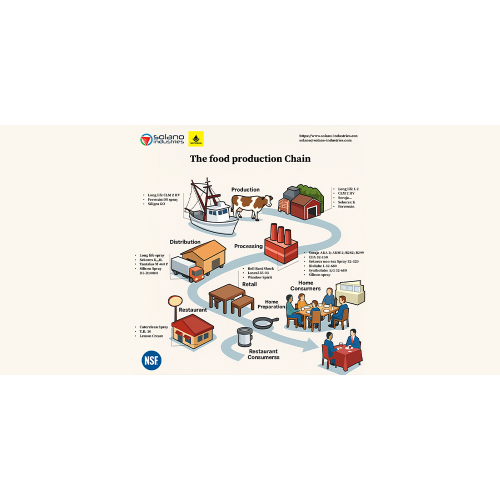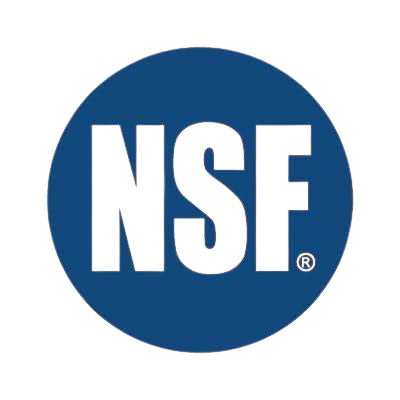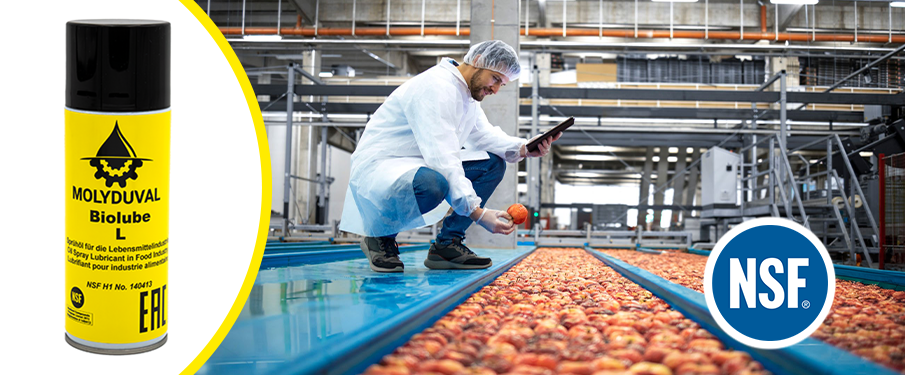NSF H1 Industrial Lubricants in the Food Industry: Safety and Performance




NSF H1 Industrial Lubricants in the Food Industry: Safety and Performance
In the food, beverage, and pharmaceutical industries, product safety and compliance with the highest hygiene standards are top priorities. At the same time, manufacturing equipment is expected to deliver high performance and durability. At the intersection of these two needs lies one essential, yet often overlooked, component – industrial lubricants with NSF H1 certification.
What are NSF H1 lubricants?
NSF H1 lubricants are specially designed for use in the production of food, beverages, animal feed, and pharmaceuticals, where incidental and minor contact with food is possible.
They are certified according to NSF International standards, ensuring that the ingredients used in the product are safe and suitable for environments where there is a risk of lubricant coming into contact with food.

Why Choose H1 Grade Lubricants?
1. Food Safety
The formulation of H1 lubricants is designed so that incidental contact with food poses no health risk. This means they do not release toxic substances and are free from heavy metals or other harmful additives.
2. Regulatory Compliance
In many countries and international food safety systems (such as HACCP, ISO 22000, BRC, IFS), the use of only H1-grade lubricants is required in areas where food contact is possible. The NSF H1 label is a clear indication of compliance.
3. Equipment Protection
Modern H1 lubricants provide high-level protection against:
- Friction and wear
- Corrosion
- High and low temperatures
- Exposure to water or steam
They are suitable for various components such as bearings, chains, conveyors, transmissions, and more.
4. Reduced Risk of Contamination
H1 lubricants are often traceable and may include specific colorants or UV indicators, which help visually inspect lubrication points and ensure a higher level of control.
Solano Industries H1-Certified Solutions
Solano Industries offers a wide range of H1-grade industrial lubricants suitable for various stages of production:
- High-temperature greases – ideal for ovens or heat treatment equipment
- Food-grade chain oils – perfectly suited for conveyors
- Bearing greases – for long-lasting protection in harsh environments
- Aerosol lubricants – for precise and convenient application
All H1 lubricants are manufactured according to strict production guidelines and are tested to ensure maximum safety and performance.
.png)
⚠ Risk Factors of Using Non-Certified Lubricants
Although some companies still use conventional industrial lubricants not intended for food contact, this can pose serious risks to both product safety and the company’s reputation:
- Contamination risk – Accidental contact between lubricant and food can result in contamination, leading to product recalls and financial losses.
- Non-compliance during audits – Failure to meet food safety standards (HACCP, ISO 22000, BRC, IFS, etc.) can result in audit failure or even the loss of business contracts.
- Potential legal penalties – Food safety violations can lead to fines or legal liability.
- Equipment damage – Incompatible lubricants may react with plastic or elastomer components, causing cracks, swelling, or wear.
- Reputation damage – Contamination incidents not only disrupt production but also erode consumer trust in the brand.
NSF H1 lubricants are not just a formality – they are an essential part of safe and reliable food production. Even incidental contact with food will not pose a risk to consumer health, while still ensuring high equipment performance.
By choosing H1 lubricants from a trusted manufacturer, companies gain not only peace of mind but also demonstrate a responsible and modern approach to food safety.













